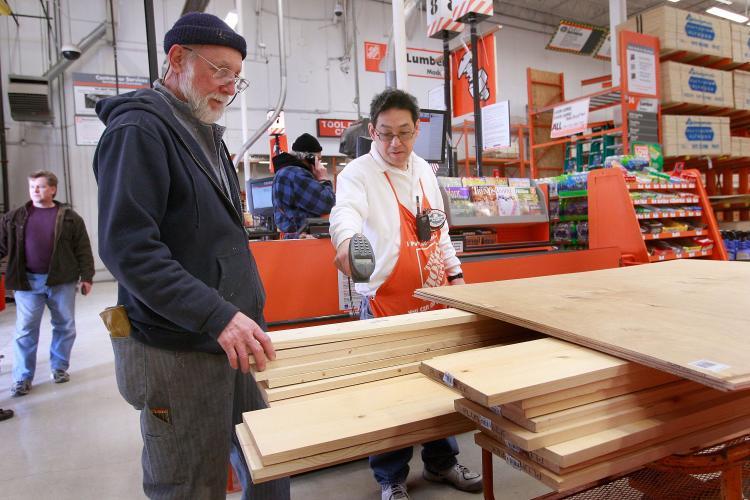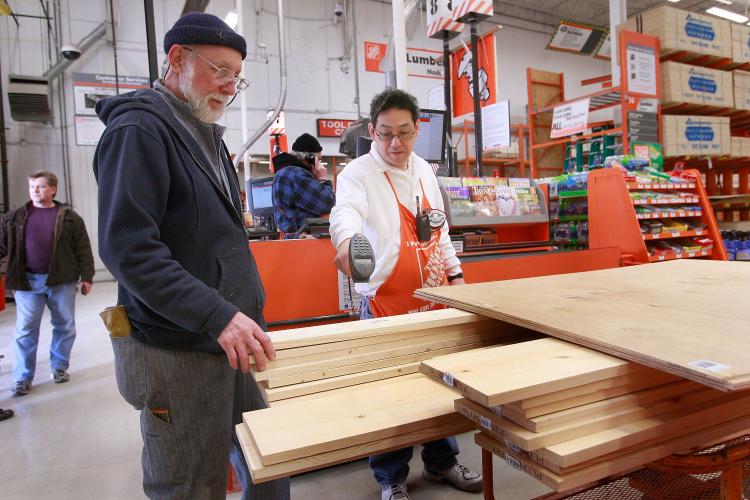Fears that the Harmonized Sales Tax will boost the underground economy are already being borne out even though the new tax has not yet come into effect, says one of Ontario’s largest roofing contractors.
“We’re getting reports that certain contractors are offering cash deals in many cases to avoid the taxes, and I’m hearing this enough times to realize that it could indeed represent some impact on what I call legitimate businesses that are trying to operate above board,” says Craig Bennet, deputy director of Avenue Road Roofing.
The HST, which combines provincial sales tax with the 5 percent GST, will come into effect on July 1 in both Ontario and British Columbia. The new tax structure will raise the tax rate on some items that are not currently subject to PST, including home renovations.
In trying to “beat the HST,” Bennet says many people have a misconception that if they book their projects prior to the implementation date, they would be exempt from paying the tax.
“In fact, consumers actually need to purchase their product or service prior to June 30 and have it completed, delivered, what have you, otherwise they are going to be subject to the HST.”
He adds that many customers have expressed concern to the company’s estimators about the increased costs and have asked them to absorb the additional tax costs.
The home renovation industry enjoyed a boom thanks to the federal government’s Home Renovation Tax Credit initiative that came into effect last year and ended in February this year.
While the program was beneficial to legitimate businesses as consumers needed receipts to apply for the rebate, Bennet is concerned that the HST could have an opposite effect and encourage people to use black market contractors.
“I think it’s certainly going to fuel the underground economy … when I look at an average person who’s not receiving an 8 percent increase in terms of their income on an annual basis,” he says.
“I just don’t see a lot of people viewing it as a benefit and in turn I think it’s going to reflect, at least on us as contractors, having to absorb these sorts of things to motivate purchasing and purchasing in a legitimate way.”
A recent survey conducted by Harris/Decima for Bank of Montreal says the removal of the home improvement tax credits has affected the renovation plans of one in three Canadians, with many not being able to afford the renovation or having to delay it.
Dr. Lindsay Meredith, a professor of marketing at Simon Fraser University, says the 12 percent HST in B.C. and 13 percent in Ontario are large numbers and if consumers can get around paying the new tax, they will.
“As long as people are feeling a little bit poor, because of the amount of debt they’re carrying and feeling put upon by the tax level that’s hitting them—you’re going to see some of this underground behaviour going on,” he says.
Meredith says many people are also buying some of the big cost items now before the tax comes into effect to avoid paying more, leading to an “artificial little spike” in consumer expenditure.
After the HST comes into effect, he says, there could be a small dip, until inventory and businesses catch up again.
“There probably is some artificial demand created by this thing and once that demand has been met and the tax does come in then you’re probably going to see a little lag in demand, until total consumer demand again catches up, starts to bite in again.”
With reporting by Joan Delaney
“We’re getting reports that certain contractors are offering cash deals in many cases to avoid the taxes, and I’m hearing this enough times to realize that it could indeed represent some impact on what I call legitimate businesses that are trying to operate above board,” says Craig Bennet, deputy director of Avenue Road Roofing.
The HST, which combines provincial sales tax with the 5 percent GST, will come into effect on July 1 in both Ontario and British Columbia. The new tax structure will raise the tax rate on some items that are not currently subject to PST, including home renovations.
In trying to “beat the HST,” Bennet says many people have a misconception that if they book their projects prior to the implementation date, they would be exempt from paying the tax.
“In fact, consumers actually need to purchase their product or service prior to June 30 and have it completed, delivered, what have you, otherwise they are going to be subject to the HST.”
He adds that many customers have expressed concern to the company’s estimators about the increased costs and have asked them to absorb the additional tax costs.
The home renovation industry enjoyed a boom thanks to the federal government’s Home Renovation Tax Credit initiative that came into effect last year and ended in February this year.
While the program was beneficial to legitimate businesses as consumers needed receipts to apply for the rebate, Bennet is concerned that the HST could have an opposite effect and encourage people to use black market contractors.
“I think it’s certainly going to fuel the underground economy … when I look at an average person who’s not receiving an 8 percent increase in terms of their income on an annual basis,” he says.
“I just don’t see a lot of people viewing it as a benefit and in turn I think it’s going to reflect, at least on us as contractors, having to absorb these sorts of things to motivate purchasing and purchasing in a legitimate way.”
A recent survey conducted by Harris/Decima for Bank of Montreal says the removal of the home improvement tax credits has affected the renovation plans of one in three Canadians, with many not being able to afford the renovation or having to delay it.
Dr. Lindsay Meredith, a professor of marketing at Simon Fraser University, says the 12 percent HST in B.C. and 13 percent in Ontario are large numbers and if consumers can get around paying the new tax, they will.
“As long as people are feeling a little bit poor, because of the amount of debt they’re carrying and feeling put upon by the tax level that’s hitting them—you’re going to see some of this underground behaviour going on,” he says.
Meredith says many people are also buying some of the big cost items now before the tax comes into effect to avoid paying more, leading to an “artificial little spike” in consumer expenditure.
After the HST comes into effect, he says, there could be a small dip, until inventory and businesses catch up again.
“There probably is some artificial demand created by this thing and once that demand has been met and the tax does come in then you’re probably going to see a little lag in demand, until total consumer demand again catches up, starts to bite in again.”
With reporting by Joan Delaney






